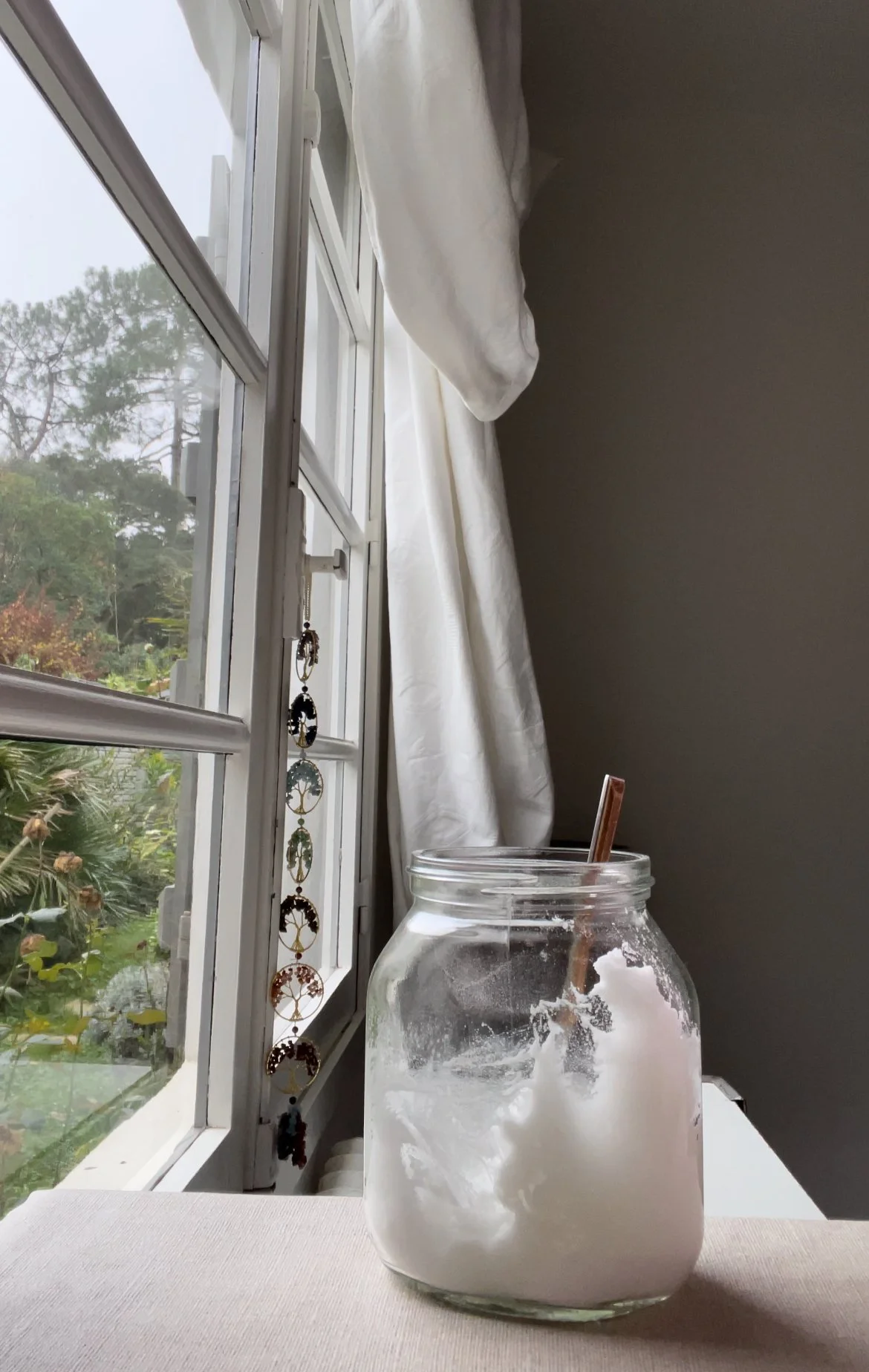Homemade Gentle Scrubbing Cleanser: Fresh, Seasonal Aromas for Natural Cleaning
Among all my homemade cleaning solutions, this gentle scrubbing cleanser is the one I make and use the most. I credit its necessity to my family’s daily showering and bathing habits. This formulation combines baking soda as a mild abrasive, Castile soap to eliminate grease and grime, hydrogen peroxide for disinfection and brightening, and my favorite seasonal fragrances. These scents not only enable the cleanser to bleach, deodorize, and sanitize but also prepare the bathroom for the holidays, keeping it fresh and festive!
This scrub is versatile and can be applied to kitchen sinks, countertops, bathroom sinks, tile, grout, and even cookware. However, it should be avoided on porous surfaces such as untreated granite, marble, and wood.
Ingredients:
3/4 cup of baking soda
1/4 cup of Castile soap
1 tablespoon of 3% hydrogen peroxide
10 drops of essential oils (Seasonal essential oil blends below)
Directions:
Combine all ingredients in a jar and mix well to form a paste. Seal and store until used.
To use:
Spread onto surface with an eco-friendly brush. Let it set in for about 10-15 minutes, then start scrubbing. Rinse clean.
Adjusting Essential Oil Drops for Different Volumes:
For 2 Cups of Scrub:
Double the essential oil drops to 20 drops.
For 1/2 Cup of Scrub:
Halve the essential oil drops to 5 drops.
Seasonal Scents:
Festive Citrus Spice
3 drops Cinnamon
2 drops Clove
2 drops Sweet Orange
2 drops Pine
1 drop Nutmeg
Fresh Winter Air
3 drops Eucalyptus
3 drops Peppermint
2 drops Pine
2 drops Lemon
Fresh Pine & Citrus Blend
3 drops Pine
3 drops Sweet Orange
2 drops Frankincense
2 drops Cinnamon
Warm Spice Blend
4 drops Cinnamon
3 drops Clove
2 drops Nutmeg
1 drop Sweet Orange
Gingerbread House:
4 drops Ginger
3 drops Cinnamon
2 drops Clove
1 drop Vanilla
Transitioning from Chemical to Natural Cleaners:
Start Gradually: Replace one chemical product at a time with a natural alternative to allow your household to adjust.
Identify Key Areas: Focus on high-use areas such as kitchens and bathrooms where the impact of cleaning products is most significant.
Educate Your Household: Share the benefits of natural cleaners with family members to encourage collective participation and support. I’ve listed them below for your reference!
Effectiveness Concerns:
Myth: Natural cleaners are not as effective as their chemical counterparts.
Reality: Many natural ingredients possess potent cleaning and antimicrobial properties. For instance, tea tree oil is renowned for its antibacterial capabilities, and vinegar is a strong degreaser and disinfectant.
Cost Considerations:
Myth: Natural cleaning products are more expensive.
Reality: DIY natural cleaners are often cost-effective, utilizing common household ingredients. Additionally, investing in eco-friendly products can lead to long-term savings by reducing health-related expenses and environmental cleanup costs.
Shelf Life and Preservation:
Myth: Natural cleaners spoil quickly and have a short shelf life.
Reality: Proper storage in airtight containers away from direct sunlight can extend the shelf life of natural cleaners. Some natural preservatives, like vinegar or essential oils, can also help maintain product stability.
Health Benefits:
Reduced Toxic Exposure: Natural cleaning products typically contain fewer harsh chemicals, lowering the risk of irritation, allergic reactions, and long-term health issues.
Safer for Sensitive Individuals: Families with children, pets, or members with allergies and asthma can benefit from the gentler formulations of natural cleaners.
Environmental Advantages:
Biodegradability: Many natural ingredients break down more easily in the environment, reducing their long-term impact on ecosystems.
Sustainable Sourcing: Brands focusing on natural products often prioritize sustainably sourced ingredients, minimizing habitat destruction and promoting biodiversity.
Lower Carbon Footprint: Natural cleaning products frequently utilize renewable resources and eco-friendly packaging, contributing to a smaller carbon footprint.
Favorite EOs: Click here to purchase the essential oils you’re missing.
Favorite Home Herbalism Store: Click here to purchase the home herbalism ingredients you’re missing.

